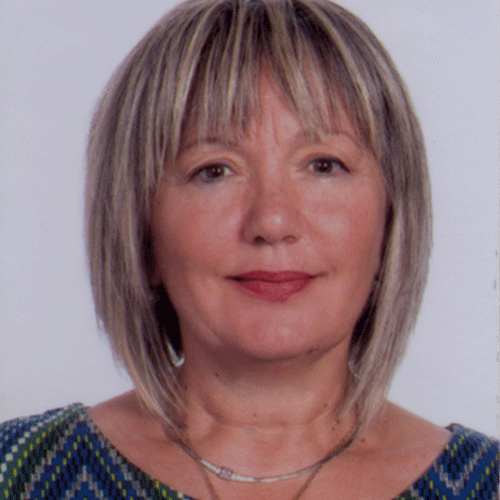

Tatjana Hema is the Deputy Coordinator of the UN Environment/Mediterranean Action Plan-Barcelona Convention Secretariat, based in Athens, Greece, since October 2016. She has strong experience of inter-governmental processes, especially in the area of marine and coastal environment, backed by solid scientific knowledge on chemical engineering and marine pollution issues.
A national of Albania, Tatjana Hema graduated in Chemical Engineering and specialized in Environmental Management and Technologies. She joined UN in 2003, after twelve years of service as a professor in Tirana University and five years as a Senior Manager in the National Environment Agency of Albania and Deputy Minister of Environment. Since then, she has covered UN assignments of different roles in MAP Barcelona Convention Secretariat addressing policy, governance and institutional aspects of the MAP system, as well as marine pollution assessment and control. She holds a PhD from the University of Tirana obtained in 1994 and a Masters’ degree on Environmental Management and Technologies from the Federal Polytechnic University of Lausanne, obtained in 1995.
In 2016 she was awarded the UN Environment BAOBAB Staff Award in the category “Environmental Service Award”, which aims at exemplifying staff members who demonstrate an outstanding effort and dedication in their field of expertise to enhance environmental sustainability and conservation at local, national, regional or international levels.
Abstract
The Mediterranean Action Plan (MAP) – Barcelona Convention’s Contribution to Sustainable Development in the Mediterranean: Focus on the Issue of Marine Litter
– Under UN Environment auspices, the Barcelona Convention is an international treaty addressing the protection of the marine and coastal ecosystems towards sustainable development in the Mediterranean. The Vision of the MAP Mid-Term Strategy 2016-2021 is the following: “A healthy Mediterranean with marine and coastal ecosystems that are productive and biologically diverse contributing to sustainable development for the benefit of present and future generations”.
– The Mediterranean Region has been facing common environmental problems and challenges, mainly related to the way human activities have developed over the years, and the associated unsustainable patterns of production and consumption. Addressing these challenges requires the transition towards a green/blue, circular, low carbon and socially inclusive economy through the adoption of sustainable consumption and production patterns, thus decoupling development from environmental degradation and resource depletion.
– The speech/presentation will focus on Marine Litter, as a complex and multi-dimensional problem: It is not only about waste management, but also about new ways of conserving the value and regenerating the natural capital/resources… The Mediterranean Sea is one of the areas most affected by marine litter in the world, having some of the largest amounts of Municipal Solid Waste generated annually per person. The vast majority of marine litter is plastics.
– Plastic marine litter is a consequence of our current way of life, with linear use of resources, and our inability to fully deal with the volume of waste this produces. The issue of marine plastics is receiving increased attention on the global and regional policy agendas. Plastic has brought together many different stakeholders around the same table, designing strategies, seeking for solutions and jointly working to combat marine litter and plastics in particular.
– UN Environment has put a lot of effort in establishing partnerships with the plastic industry:
o At global level, the UN Environment/GPA Global Partnership on Marine Litter (GPML) is a voluntary multi-stakeholder coordination mechanism which brings together policymakers, civil society actors, the scientific community and the private sector to discuss solutions and catalyze actions.
o At regional level, the Mediterranean countries adopted in 2013 the first ever Regional Plan on the Management of Marine Litter. This Regional Plan contributes to the implementation of the SDG 14, towards the achievement of Target 14.1 “by 2025, prevent and significantly reduce marine pollution of all kinds, particularly from land-based activities, including marine debris and nutrient pollution”. In terms of multi-stakeholder partnerships, the UN Environment/MAP was instrumental in establishing the Regional Cooperation Platform on Marine Litter in the Mediterranean, an open-ended group of stakeholders working together and seeking for solutions on marine litter and plastics in the Mediterranean.
– Most importantly, our efforts should target in inspiring the general public to reduce their plastic footprint.
